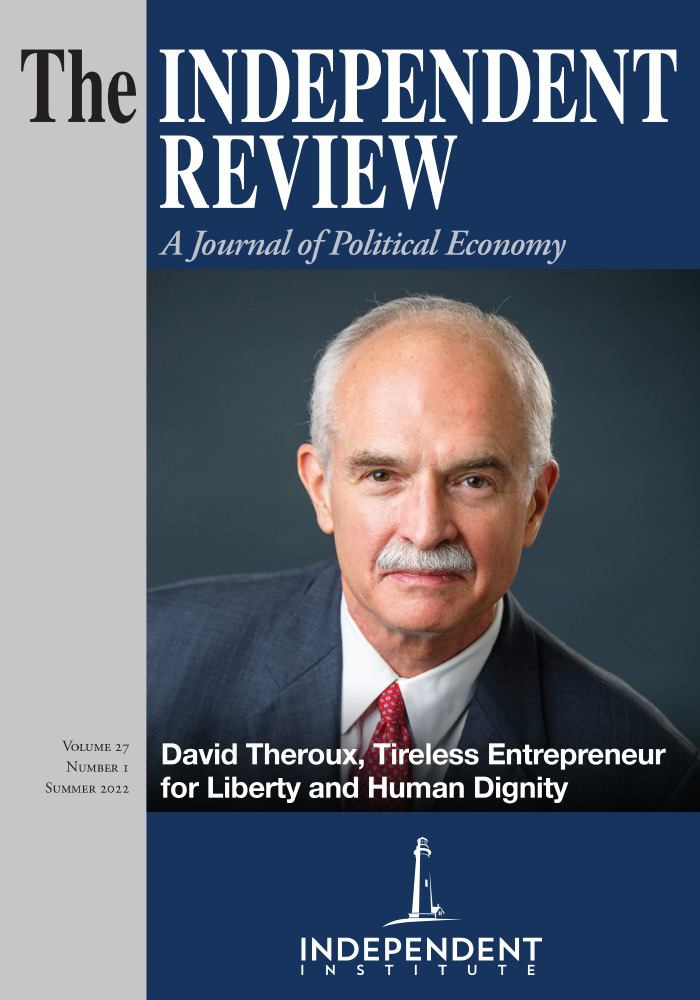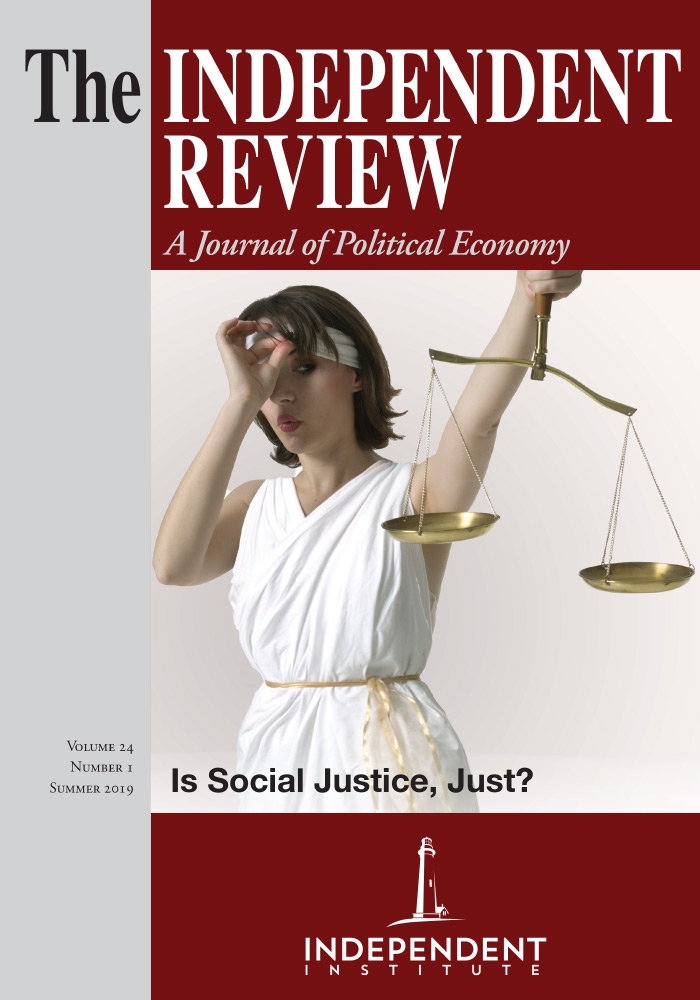This new book by Michael Rectenwald undertakes for itself a bold task right from the moment you read its title, analogizing the current state of the internet economy with the horrific conditions borne by Aleksandr Solzhenitsyn in the Soviet Gulags. His general argument, however, is direct and potentially persuasive: that due to the oligopolistic nature of the modern internet, with Google, Facebook, Twitter, Instagram, and Amazon controlling such a large portion of all traffic in their respective spheres, these corporations have the ability to push their own personal, Leftist, agendas upon consumers who simply want to be able to access the information and products for which they have become an essential gateway. In turn, these corporations, with an assist from the government, will use their monopoly power to punish into submission anyone unwilling to get onboard with the new “woke” agenda.
Rectenwald’s general concerns with private and social, rather than governmental, censorship place him within good company. The pre-eminent liberal philosopher J.S. Mill once noted in On Liberty (1859; 2011, Gutenberg Institute, p. 8) that the censorship of civil society “practises [sic] a social tyranny more formidable than many kinds of political oppression, since, though not usually upheld by such extreme penalties, it leaves fewer means of escape, penetrating much more deeply into the details of life.” Rectenwald correctly notes (p. 78) how the Chinese Cultural Revolution, while directed by political elites, was undertaken by private citizens who in their zealotry were willing to literally destroy the livelihoods of their compatriots who were viewed as insufficiently loyal to Maoism.
Unfortunately, Rectenwald’s book does not live up to the lofty aims he sets for himself. The volume is chock-full of paranoid claims made without evidence that makes one question the entire argument. For example, beginning on p. 30, he claims that what he refers to as “Big Digital” “are not only monopolies . . . but will also either continue to be incorporated by the state, or become elements of a new corporate state power.” Such a bold claim is essential to his argument, as the mechanism of their control over the individual functions only if there is neither “exit” nor “voice” available for consumers who are not ideologically consistent with the political-media elites. However, he provides no evidence beyond repeatedly insisting this is true.
Basic economics, by contrast, tells us that the burden in this setting for such an argument is high. Monopolies are likely to persist only when the cost of entry for competitors is high (lack of available exit options for users). In the case of internet media, where cost of entry is infinitesimally low, for a seeming monopoly to persist, the users of said product must be viewing themselves as receiving more value than they would elsewhere; otherwise, with low entry costs, a new competitor would join the fray. While market dominance may persist, it is only doing so because the current product is providing superior value relative to potential competitors. To see that this is the case with social media, one only needs to consider the failure of the highly promoted recent Twitter competitor Parlor, which launched in 2018 as a “free speech” alternative, but has failed to top 4.5 million users by 2020 (compared to 262 million for Twitter), despite Twitter ramping up its use of banning and placing warnings on tweets that shared false statements during the election. With such options available, it seems that these bans and warnings do not bother the vast majority of Twitter’s user base. Hence, it is hard to see how we can think of Twitter’s “monopoly” as even remotely analogous to the crushing Soviet prison state.
This is not Rectenwald’s only struggle with economics. A key part of his argument is that so-called “Woke capitalism” “substitute[es] symbolic for economic value” (p. 43, emphasis in original). This is essential because he wants to claim that free market mechanisms are not doing their job keeping these rogue corporate elites in check, forcing them to provide consumers with what they want, and nothing more. He offers nothing, however, to show that what’s being provided (his so-called woke capitalism) isn’t what the consumers want. In fact, his notion of “economic” value is an anachronism that has gone by the wayside along with the labor theory of value. By contrast, for the last 150 years, economists have understood the value of goods to be subjective, something that only the consumer can quantify. As noted by Carl Menger in his classic textbook Principles of Economics (1871; 1976 Mises Institute, p. 121), “It is . . . erroneous to call a good that has value to economizing individuals a ‘value’ . . . as of independent things . . . it is a judgement made by economizing individuals about the importance their command of the things has for the maintenance of their lives and subjective well-being.” Indeed, Menger further reiterates “the value of goods . . . is entirely subjective in nature” (emphasis in original). Therefore, the burden is on the person making the argument that these corporations are no longer providing for their clients.
Rectenwald fails to clear this bar in his most prominent example, the razor company Gillette. Multiple times throughout the book, he uses Gillette’s 2019 “The Best A Man Can Get” ad campaign. He describes it as portraying “bullying, mansplaining, misogyny, and sexual predation [to] shame bad men and enjoin a woke minority of men to ‘hold other men accountable,’ or else face shame as well. For Gillette, ‘shaving’ now apparently means men shearing away the characteristics associated with manhood” (pp. 44-45, scare quotes in original). Regardless of the accuracy of this description, he claims that “the corporation was willing to forgo profits for virtue” (p. 45). This claim that the corporation was kowtowing to a woke minority, or that they were sacrificing profits to push their own woke agenda, is simply asserted without defense. He cites that the corporation’s revenue in the immediate aftermath of the controversy were flat as evidence that the ad didn’t work, without noting that individual ads are part of a general campaign, the success (or failure) of which may take years to assess. This is particularly the case when the stated reason given by the corporation was to “connect more meaningfully with younger consumer groups” (p. 45). This seems exactly what a profit-seeking corporation should do, and not evidence of a Corporate-Leftist conspiracy; it simply seems that Rectenwald is unhappy that current generations of consumers have different preferences than himself. Indeed, he admits (p. 65), when praising older Gillette ad campaigns for teaching “the lesson . . . that men take care of themselves” as a contrast with the apparently Woke campaigns of today, that “Gillette’s business practices were not wholly at odds with the ideas in this book,” as they continued to seek patents and government contracts to maximize their profits during this time.
He goes further into making misleading statements when he cherry-picks, first on p. 37 and then in Chapters 3 and 4, digital media scholars, whom he terms the “digitalistas,” for taking a myopic, anti-capitalist view in criticizing the modern digital economy. For Rectenwald, this myopic focus on the economy of the internet has led them to ignore the “Digital Gulag” forming around them.
In doing so, he ignores a mass of frontier scholarship published in prestigious political science journals that examines exactly how internet media controls the information structure around us. See, for example, Kevin Munger, “All The News That’s Fit to Click: The Economics of Clickbait Media,” Political Communication 37:3 (2020), 376-397, which shows how the incentive to be the first to write on a topic, and the low cost of posting on sites such as Facebook and Twitter, leads the denizens of the internet to lack trust in any information given, or Kristina Lerman, Xiaoran Yan, Xin-Zeng Wu, “The ‘Majority Illusion’ in Social Networks”, PLOS ONE 11(2) (2016), which shows that even slightly skewed “echo chambers” in social networks lead one to believe that they themselves are in the majority, regardless of how rare their particular political opinions actually are. These papers, only two examples in a sea of hundreds in recent years, are exactly interested in how internet corporations skew the information that is available to citizens. However, they do not neatly fit his agenda, showing instead that much of the effect of the internet on people’s beliefs are products of their own choices, and so go unmentioned. Worse, he claims that such literature doesn’t exist at all, for he surely could not claim such papers carry his supposed Digitalista left-wing bias.
The reality is this book reads as a screed against “leftism” that is only interested in scholarly questions about the internet to the extent it fits that agenda. Whether he is calling Google “leftist totalitarians” (p. 35), referring to a “globalist” elite (p. 43), claiming the showrunner of the legendary Gilligan’s Island was an “unconscious Marxist” (p. 57), or claiming that Facebook and Instagram “promised to ban anyone to the right of Joseph Stalin” (p. 73), Rectenwald is doing a disservice to an actual question of great import by lowering it to the rhetorical flourishes of, at best, an Alt-Right weekly.
This commitment to making what should be a scholarly argument into an ideological jeremiad causes him to undercut his own thesis. Consider, for example, his discussion of Talking Points USA. The group, as he mentions in a footnote, “maintains a Professor Watchlist” (p. 36) which monitors supposed left-wing professors on college campuses. One would think this is exactly the kind of thought policing on the internet bleeding into the real world about which Rectenwald worries. Indeed the “American Association of University Professors claims [it] is a harassment campaign” (p. 36). However, because this does not fit his story, it is only brought up in passing to lament the “abuse heaped upon the former communication director of Talking Points USA” (p. 36), the only cited example being on p. 81 where he alludes to some of her posts being blocked on Facebook as false information.
Of course, as may have become clear, it is incapable for a reader such as me to fully appreciate his arguments. As Rectenwald claims, and further elaborates over the book’s latter half, which is a collection of personal anecdotes used to support his argument, it was only when [his] “politics had changed . . . [that] allowed me to notice the pervasiveness and deep penetration of leftist ideology in almost every area of life, especially academia” (p. 71). As someone who has apparently not had such an awakening, I am left disappointed by a book with great promise being undercut by such lazy mistakes as referring to the AMC classic Mad Men as “the HBO show Madmen” (pp. 47-48), claiming that the show portrayed Don Draper as a hero who “makes short work of beatniks and hippies” (p. 48) rather than a careful exploration of the cultural changes of the 60s, and using Steven Crowder as a champion of liberty who has been censored by Youtube for wrongthink, rather than a man who Youtube declined to allow to use their platform for acquiring advertising revenue after Crowder engaged in a targeted harassment campaign against a homosexual blogger, including selling a t-shirt that said “Socialism is for F*gs,” where a fig emoji occupied that crucial missing letter. Here’s to hoping other scholars pick up his challenge soon.





















